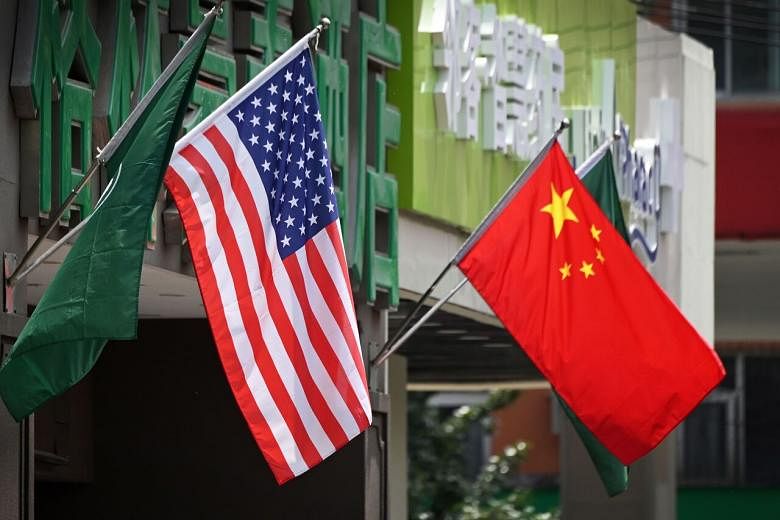TOKYO (THE YOMIURI SHIMBUN/ASIA NEWS NETWORK) - The escalating confrontation between the United States and China, the world's two largest economies, could further destabilise the international situation.
Both countries should realise their heavy responsibilities and stop the chain of retaliation.
The United States has shut down the Chinese Consulate General in Houston, Texas, in the southwestern part of the country, on the ground that it was used as a "hub of Chinese spying."
As a countermeasure, China has closed the US Consulate General in Chengdu, Sichuan Province, and claimed that some personnel at the consulate general were "conducting activities not in line with their identities."
The role of a consulate general is to protect its own country's citizens, be aware of the situation in the country where it is located and engage in dialogue and exchange with the host country.
However, taking advantage of a Vienna Convention article on the inviolability of foreign diplomatic missions, major powers often engage in intense intelligence-gathering activities.
There are many cases in which a diplomat who is believed to be a spy is deported. However, it is unusual for a country to close a diplomatic mission of another country without specifying concrete illicit activities of that country.
This can be regarded as a serious aspect of the confrontation between the United States and China.
The practice of using the closure of diplomatic missions as a sanction must not spread to other countries and hamper legitimate diplomatic activities.
The United States has made it clearer that it will step up pressure on China. Based on a ruling in 2016 by an international tribunal at The Hague, US Secretary of State Mike Pompeo said that China's claims of maritime interests in the South China Sea were "completely illegal."
In his policy speech on China, Mr Pompeo stated that engagement with China by past U.S. administrations that aimed to incorporate China into the international community had been a failure, and called for a change in the engagement policy.
He also stressed the need for democratic countries to unite to contain China.
It cannot be denied that the administration of Chinese President Xi Jinping has not listened to warnings from the international community, and has taken measures that ignored the rule of law, trade rules and human rights.
It is pressing ahead with its militarisation in the South China Sea, as well as breaking an international promise and depriving Hong Kong of its freedom and threatening the world order.
It is understandable that the United States is trying to change China's behaviour. The question is how and when.
As opportunities for dialogue between the United States and China have been reduced due to the spread of the novel coronavirus, continued retaliatory battles could escalate tensions and develop into an unforeseen conflict.
If the United States takes excessive hard-line measures, it will not be able to win the support of Japan and European countries.
Suspicions still linger that US President Donald Trump is showing a confrontational attitude toward China in order to strengthen his support for the presidential election in November.
The Xi administration also is apparently being forced to take a hard-line attitude toward the United States to avoid domestic criticism of a "soft attitude" and maintain its prestige.
Both the United States and China must regain their composure and find ways to settle the situation.
The Yomiuri Shimbun is a member of The Straits Times media partner Asia News Network, an alliance of 24 news media organisations.

